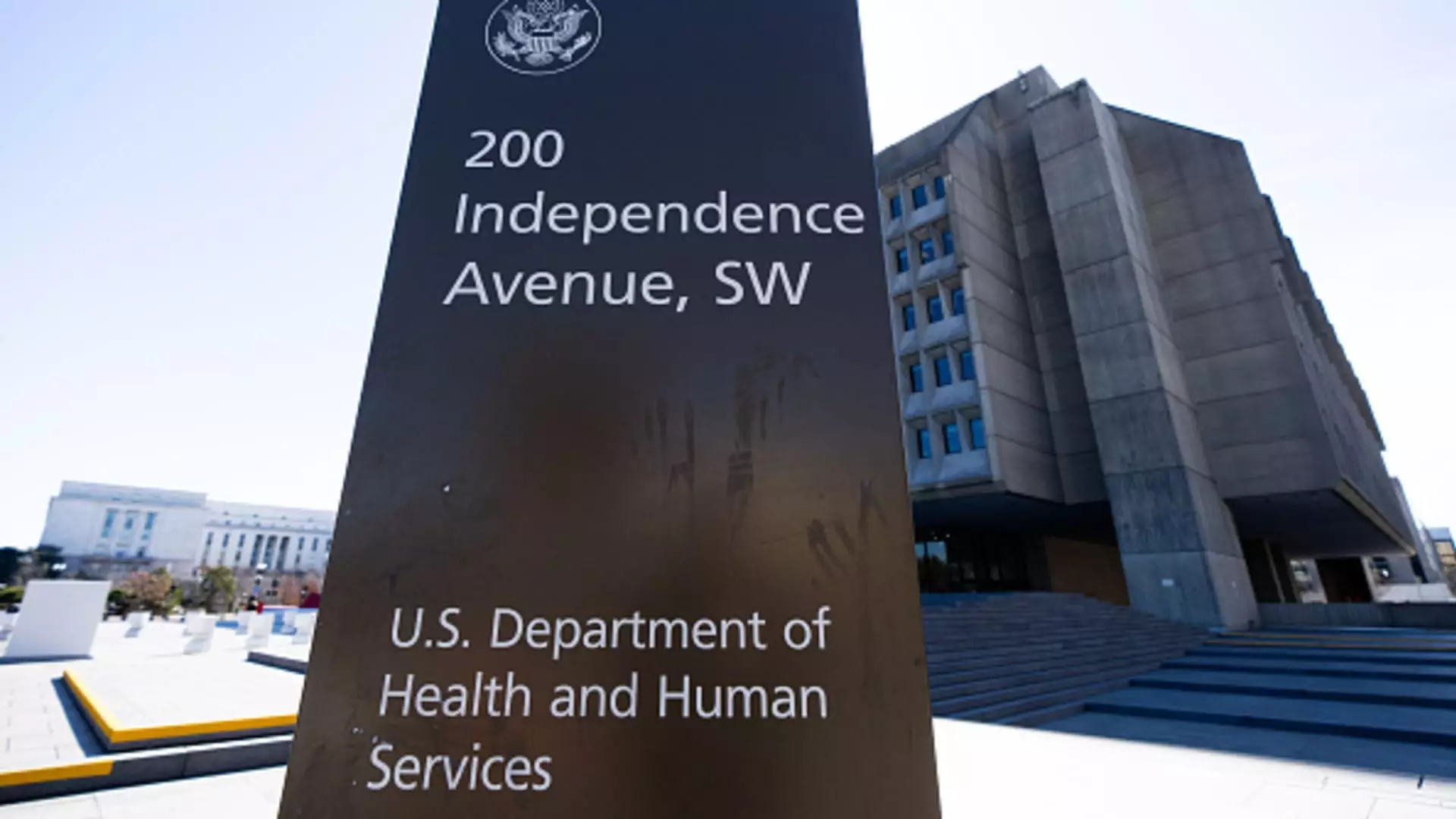In an alarming turn of events, employees at the U.S. Department of Health and Human Services (HHS) began receiving termination notices on Tuesday. The scale of this reduction is monumental, with predictions of up to 10,000 positions being eliminated as part of a massive restructuring initiative unveiled by Health Secretary Robert F. Kennedy Jr. The implications of such layoffs resonate across every corner of America, impacting not only the health infrastructure but the lives of countless individuals who rely on these essential services. This drastic move comes on the heels of President Donald Trump’s controversial decision to dismantle collective bargaining rights for federal employees, raising a clear alarm about the erosion of worker protections at a time when health departments need stability the most.
A Misguided Vision for Health Services
The proposed overhaul of HHS signifies a misalignment with the needs of the public. Under the guise of efficiency, Kennedy’s plan consolidates vital health services under a newly proposed office: the Administration for a Healthy America. This plan can be likened to digging a hole to fill a hole; it contradicts any reasonable understanding of public health. Agencies responsible for critical oversight, research, and support are being collapsed, not only jeopardizing their productivity but also sparking a ripple effect that will reverberate through the healthcare system. Public comment from figures like Democratic Senator Patty Murray emphasizes the grave concerns that this strategy puts many lives at risk, especially during crises, such as natural disasters or ongoing health emergencies like the measles outbreak.
Financial Cuts and Their Disastrous Implications
The immediate financial impact of these layoffs cannot be overstated. With more than $11 billion in COVID-19-related funds being withdrawn, state and local health departments are already experiencing budget shortfalls. There’s a cruel irony in cutting funds to health departments while the country grapples with the remnants of a pandemic. Local health officials report that job losses are not merely future hypotheticals; many have already vanished overnight. The need for robust health governance becomes paramount during such times, making the cuts feel not just reckless but almost maliciously negligent.
The Assault on Workers’ Rights
Yet, these layoffs are just one aspect of a broader strategy that seeks to undermine workers’ rights. The termination of collective bargaining, demonstrated starkly by the executive order signed by President Trump, signifies a dangerous trend toward authoritarianism within government employment. This move is not just an affront against labor rights — it’s an assault on the very foundation of fair workplace practices. Unions, often the last line of defense for employees against exploitative practices, have been rendered nearly ineffective against this barrage of policy changes.
With the erosion of workers’ rights, we face a future where not only the economic security of thousands hangs in the balance but also the integrity and ethics of the health care system itself. Democratic lawmakers echo this sentiment, denouncing these actions as stripping hard-fought protections from civil servants. The rhetoric around “doing more with less” simply ignores the complex realities of public health work, where every position lost signifies a setback for the community’s well-being.
The Unraveling of Essential Institutions
The proposed cuts at HHS send shockwaves through the larger fabric of public health. The Food and Drug Administration (FDA) faces a staggering reduction of 3,500 jobs, directly impacting its capacity to oversee critical safety standards for food and medications. The Centers for Disease Control and Prevention (CDC) is expected to shed 2,400 positions; this can only mean a compromised ability to respond to infectious disease outbreaks and safeguard public health across the nation.
As we isolate essential elements of health oversight into fewer, larger entities, we risk losing the nuanced understanding that a diverse workforce provides. The balance of perspectives and expertise within public health is crucial for navigating today’s complex health challenges. Unfortunately, collapsing this essential diversity into a streamlined approach dilutes the very essence of public health governance, making it more rigid in its response to crises.
The Consequences Beyond Borders
This upheaval not only threatens American infrastructure but raises serious ethical concerns about the future of global health practices, as the U.S. sets a precedent that could resonate internationally. Nations observe closely how the U.S. approaches public health; weakening our own can destabilize partnerships and cooperative efforts, risking a global health security network that hinges on collaborative strength.
In sum, the recent actions taken by HHS undercuts the collaborative spirit necessary to tackle ongoing challenges in public health. It ignites anxiety about the trajectory of health governance in America, leaving citizens vulnerable and unprotected. As the landscape shifts, so too does the moral imperative to protect and empower those dedicated to ensuring public health, heightening the call for activism and advocacy in safeguarding our institutions.

